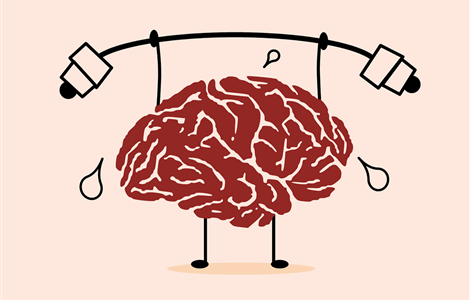
Certain activities may help prevent memory loss or dementia. Here are seven easy strategies that you can use to improve your memory, and when to seek help from our home GP doctor for the elderly in Costa del Sol.
1. Make it a part of your daily routine to participate in some form of physical activity.
Your entire body, including your brain, will benefit from the increased blood flow that results from engaging in physical activity. This could help keep your memory in good shape.
Our Home GP doctor for the elderly in Costa del Sol recommends that the majority of healthy adults engage in at least 150 minutes of moderate aerobic activity, such as brisk walking, or 75 minutes of vigorous aerobic activity, such as jogging, each week, with the time spent on these activities being spread out as evenly as possible throughout the week. If you don't have enough time for a full workout, try breaking up your day with a few walks that last ten minutes each.
2. Keep your mind engaged in productive activities.
Similar to how physical activity can help keep your body in shape, engaging in mentally stimulating activities can help keep your brain in shape as well, which can help prevent memory loss. Playing word games like crosswords, competing in bridge or learning to play a musical instrument can help boost your memory.
3. Socialise regularly
Memory loss can be caused by both depression and stress, and social interaction helps to protect against both of these factors. If you live by yourself, it is especially important to look for opportunities to get together with loved ones, friends, and other people.
4. Take steps to become more organised
When you have a cluttered home and your notes are all over the place, you increase the likelihood that you will forget things. Make sure to record all of your responsibilities, engagements, and other activities in a dedicated notebook, calendar, or electronic planner.
You could even try saying each entry out loud as you write it down to help you commit the information to memory more effectively. Maintain up-to-date to-do lists and cross items off as you finish working on them. Create a space in which you can store your wallet, keys, glasses, and any other necessities.
Reduce the number of things that could distract you and avoid taking on too much at once. If you give your full attention to the material that you are attempting to remember, you will have a better chance of doing so in the future. Connecting what you're trying to remember to something you already know, such as a favourite song or idea, might also be helpful.
5. Get adequate rest
Remembering things in the future will be much easier if you get enough sleep each night because your memories are strengthened while you are asleep. Make getting adequate rest one of your top priorities. The average adult requires between seven and nine hours of sleep per day.
6. Follow a nutritious eating plan.
It's possible that maintaining a healthy diet is just as beneficial for your brain as it is for your heart. Consume a diet rich in fruits, vegetables, and grains. Pick protein sources that are lower in fat, such as fish, beans, and poultry without the skin. What you drink is also something to consider. Drinking an excessive amount of alcohol can cause mental confusion and loss of memory.
7. Take care of preexisting chronic conditions
If you suffer from a medical condition such as depression, high blood pressure, high cholesterol, diabetes, obesity, or hearing loss, it is important to follow the treatment recommendations provided by your doctor. The more you focus on taking care of yourself, the more likely it is that you will have a healthy memory. Additionally, it is important to have regular medication reviews with your primary care physician. A number of different medications can have an impact on memory.
When to seek help from our Home GP doctor for the elderly in Costa del Sol
Talk to our home GP doctor for the elderly in Costa del Sol if you're concerned about memory loss, particularly if it's affecting your ability to carry out the activities of daily living that you would normally do or if you've noticed that your memory is getting worse. Memory and problem-solving skills are going to be tested, in addition to a possible physical examination, by this person.
There are times when additional diagnostic procedures are required. The treatment you receive will be determined by the factors that are contributing to your memory loss.